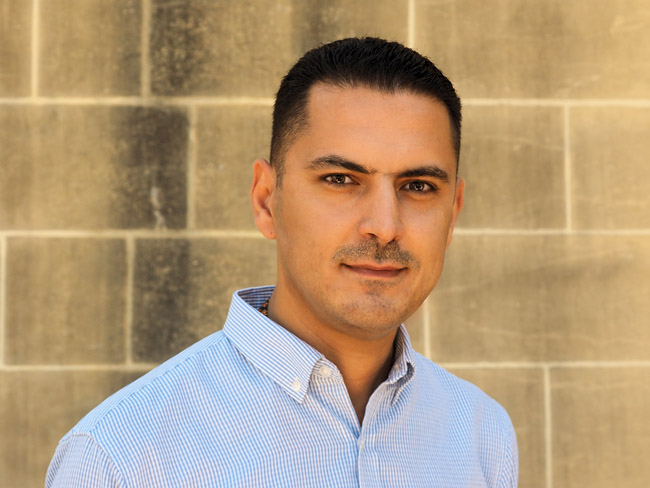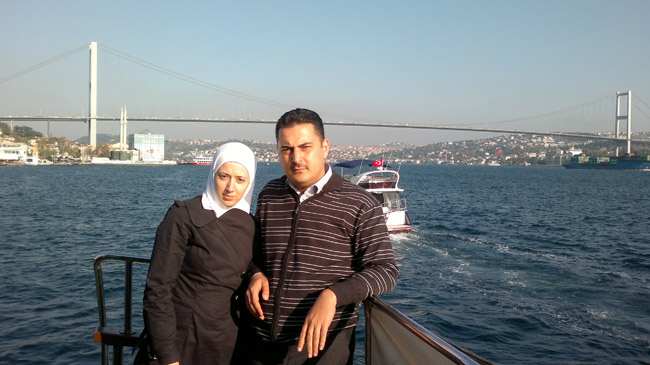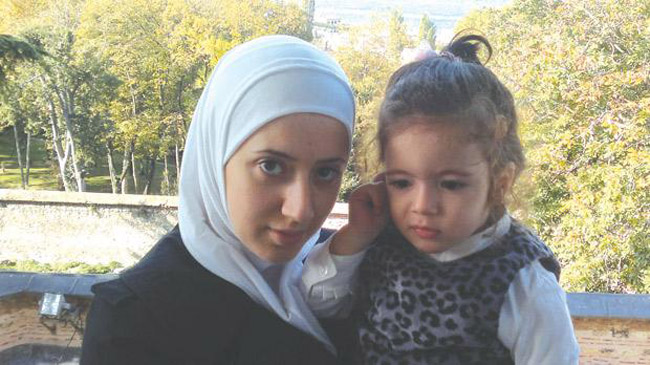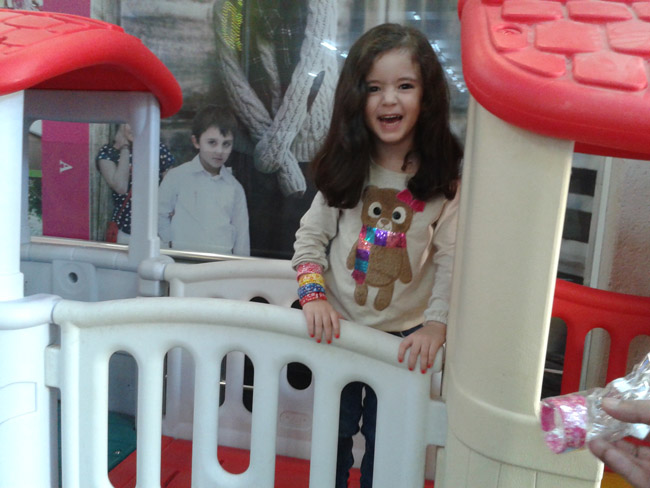Dr Ayman Mostafa is one of 212 survivors out of some 450 Syrian and Palestinian refugees who perished on 11 October 2013. His wife and three-year-old daughter were among the victims. In an interview with Neil Camilleri, he confirms that help from Italy and Malta only arrived six-and-a-half hours after the first call for help – by which time the victims had spent 90 minutes in the water. He finds it in himself, however, to forgive those who “made a mistake” and believes his family and many others laid down their lives so that others could be saved in the future.

“There is no excuse for those who knew we were going to die and failed to come and save us,” says Dr Mostafa Ayman, a survivor of the 11 October Lampedusa tragedy.
Dr Mostafa was one of around 450 people who tried to cross the Mediterranean on a 25-foot fishing boat last year, and one of 212 who actually made it out of the hellish voyage alive. The boat, holed during the night by machine-gun fire from a Libyan speed boat, was slowly sinking and those on board desperately tried to call for help. This was the second big tragedy of the month: barely a week earlier more than 360 migrants had drowned just off the coast of Lampedusa.

We pleaded for help six hours before the tragedy
In an interview with The Malta Indendent on Sunday, Dr Mostafa confirmed the sequence of events given immediately after the tragedy by another survivor, a friend and fellow surgeon, Mohammad Jammo. “Dr Jammo called Malta several times. The first time was at 11.30am. He called the Italian police and gave them our position. No one came and he called again an hour later. The second time they told us that we were not inside their territory anymore and that we had to contact the Maltese government. They gave us their number.”

Dr Mostafa says the Maltese authorities were eventually reached at around 1.30pm and a number of calls were made, but the Maltese SAR plane only appearead overhead at 4pm.
“The plane was going around in circles. We called Malta again and pleaded with them that we were going to die. We asked for the plane to throw a rubber dinghy or life jackets.”
But the Syrian surgeon, who today lives in Malta and practices at Mater Dei Hospital, said the aeroplane only threw down a liferaft after the boat capsized. “The first Zodiac (a dinghy) only reached us 90 minutes later; we were in the water for an hour-and-a-half. In that time many people, including my wife, Fatena, and my daughter, Joud, lost their lives. When the Maltese and Italian patrol boats arrived, they started pulling people out of the water.”

Every single soul could have been saved
Dr Mostafa would learn some weeks later that, although the Maltese and Italian vessels managed to save 200 people, they could have potentially saved all the migrants, had they acted sooner. Investigations carried out by Italian newspaper L’Espresso and by this newsroom showed that Malta – which by noon had taken over coordination of the rescue mission – had six options but seemed to have made the wrong choice. `
The two merchant ships and two fishing trawlers that were in the area were not requested to divert to the area and also seemed to ignore an international maritime warning. In addition, five Italian coastguard and Guardia di Finanza boats – some of which could have reached the doomed migrant vessel by 3.30pm, a full hour-and-a-half before tragedy struck – were not despatched. They were still moored in Lampedusa when they were needed the most.
The Italian navy ship ITS Libra was 50 kilometres away from the migrant boat when the first call for help was made but the ship was instructed to go around in circles at slow speed and was only instructed to help at 5.10pm, reaching the survivors at 6pm – six-and-a-half hours after the first call and a full hour after the boat had capsized.
The ‘sixth’ option
The sixth option – and the one Malta opted for – was to keep all military and civilian assets on stand-by and send a Maltese SAR plane to the area as well as patrol boat P61. The initial position of the Maltese vessel remains unclear to this day but it arrived on the scene at 5.51pm – more than 45 minutes after the boat had turned turtle and sunk. By the time help was at hand it was almost dark and many of the 450 migrants had drowned.
The Italian authorities had insisted that they could not act without orders from the Maltese and the Maltese have always insisted that they did nothing wrong, but they have never fully explained their actions. In fact, the AFM and the government have consistently refused to answer questions posed by this newsroom and have even refused to answer a Freedom of Information request by other sections of the press. The two countries subsequently traded accusations and the issue was hotly debated in the Italian Parliament.
Italy and Malta helped us but made a big mistake
“They tried to help us but they made a big mistake,” says Dr Mostafa, reminiscing about that fateful day. “For me, there is no explanation, no excuse for what happened. The past is too painful for me, it is too difficult to look back. There is no excuse for anybody who knew about us and did not save us.”
But 10 months down the line, the surviving father and husband can find it in his heart to forgive. “If you want to help me and you make a mistake, I will forgive you. I am thankful to the Maltese and Italian government because at least they saved 200 people. It is not enough, but it is good.”
Ayman Mostafa does not extend the same sympathy to the Libyan speed boat crew “who tried to kill us”, however. He also tells of how lifejackets he had bought for himself, his wife and his daughter were snatched away from them by the human traffickers even before they left port in Zuwara.

Our families did not die for nothing
“Every time I hear that the Maltese or Italian governments have saved people in the sea I am happy because that means that our families did not die for nothing. Something changed after our story. It’s enough for me, I am not going to judge governments or people for mistakes or something that happened in the past but it is important for me to look to the future. I am satisfied with what is happening now, they are doing well. They are saving people every day. Just yesterday, they saved people 40 miles from the Libyan coast.”
The Syrian surgeon believes that the price paid by his young wife and daughter, and so many others, was not pointless because it has brought about the needed change – a change in strategy that is saving more lives at sea. Indeed, the Italian-led operation Mare Nostrum – a direct consequence of the October 2013 tragedies – has had a profound effect. “I think my family rests in peace now. It was our destiny to come here, that some of us died and some survived, because I believe things are better now. What is important is to look to the future and not the past.”
Dr Mostafa insists that he is grateful to the Maltese government and people, who have always treated him well. “I am happy here in Malta, I have a job and everyone treats me well. That is what is important now.”
For more stories on the 11 October Lampedusa tragedy see:
A case of political bravado gone wrong?
Message to mariners warned that migrants required assitance